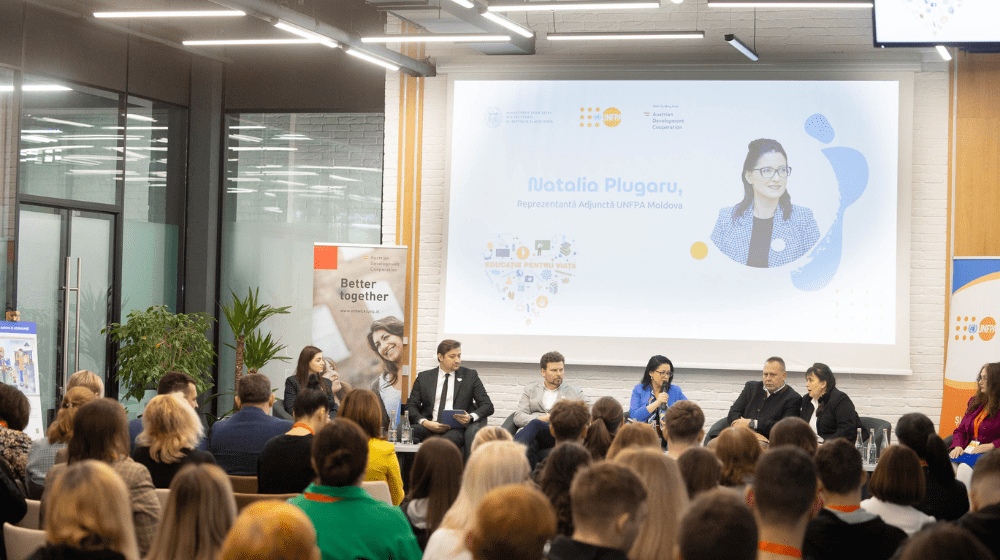Over 12,000 students in technical vocational education, approximately 1,400 employees, and hundreds of parents have been part of the program "Development of soft skills and healthy behaviors of students in technical vocational education for better employment preparation." The program's results were presented at an event organized by the United Nations Population Fund (UNFPA), bringing together representatives from the Ministry of Education and Research, VET institutions, the business environment, non-governmental organizations, and youth.
Launched in 2019, the program aimed to promote healthy behaviors and the development of life skills among students for better employment preparation. The program's target group included young people, including refugees and those with disabilities, employees of 12 technical vocational education institutions and business companies, as well as parents.
"I am very pleased that there are programs of this kind addressing sensitive issues for our society. Firstly, I want to thank the directors of the beneficiary educational institutions for their courage and willingness to be part of this project, and our partners - UNFPA and ADA - for being active in this dimension and supporting us. It is crucial to learn technical skills in school, but equally important is to acquire life skills that help us make informed decisions on personal and professional matters. For this reason, the ministry will continue to support such initiatives," stated Dan Perciun, Minister of Education and Research of the Republic of Moldova, at the event.
Natalia Plugaru, Deputy Representative of UNFPA Moldova, referred to the progress of this program. "Four years ago, we embarked on this journey with the Ministry of Education and Research and the Austrian Development Agency to see how Technical Vocational Education institutions can provide not only professional skills but also essential life skills for young people in their transition to maturity and in their employment process. I am glad that beautiful partnerships have been created between vocational schools, Youth Centers, and Youth-Friendly Health Centers. Together, we have created opportunities to help young people develop beautifully, at home, in Moldova," concluded the Deputy Representative of UNFPA.
Twelve technical vocational education institutions in Chisinau, Cahul, Nisporeni, Rezina, Orhei, Edinet, Rascani, and Balti were empowered to sustainably teach quality health education focused on developing life skills in students. The curriculum of the "Decisions for a Healthy Lifestyle" discipline was updated, schools were equipped with friendly classrooms and interactive materials that meet the current knowledge and development needs of students, and teachers who taught the discipline participated in 30 training sessions over two years. Thus, 7,500 students studied the "Decisions for a Healthy Lifestyle" discipline based on the new curriculum over the four years of the program. Over 200 employees from nine companies participated in training programs regarding creating friendly and safe working conditions for young employees. As a result, some companies decided to review and update their internal policies.
The conference discussed the progress made and perspectives on creating a friendly environment for TVE students, both in schools and in companies. Achievements were outlined, as well as transformations made during the program, and experiences and best practices from VET and business companies were analyzed from the perspective of students, teachers, and employers.
Starting in 2024, the program will expand to benefit all VET institutions and business companies in dual education, so that even more girls and boys have the opportunity to develop life skills for better employment.
The program "Development of life skills and healthy behaviors among students in technical vocational education for better employment preparation in the labor market" is carried out by the United Nations Population Fund (UNFPA) with financial support from the Austrian Development Agency (ADA) from the funds of Austrian Development Cooperation, in partnership with the Ministry of Education and Research."


